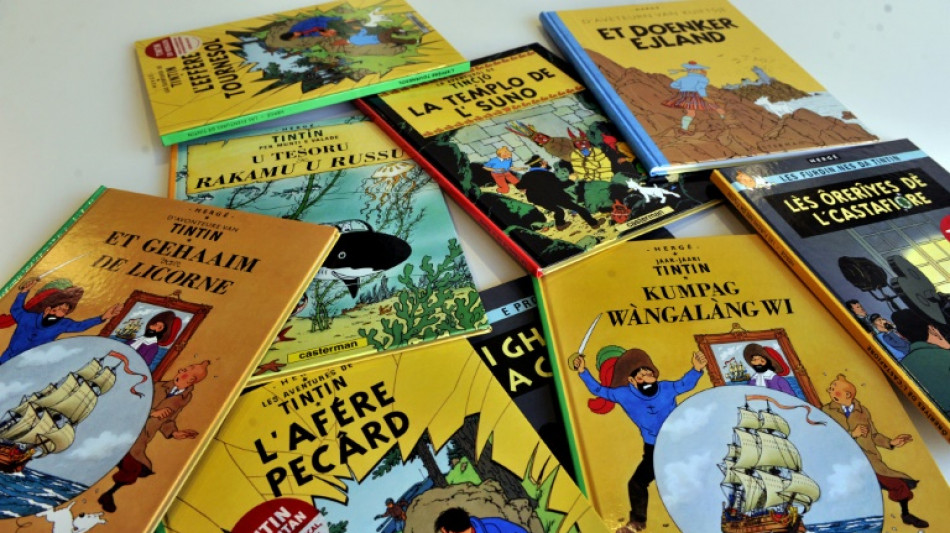
-
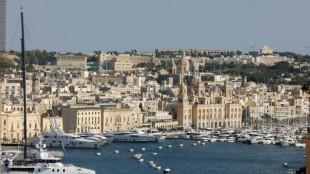 EU top court rules 'golden passport' schemes are illegal
EU top court rules 'golden passport' schemes are illegal
-
Mounds of waste dumped near Athens's main river: NGO
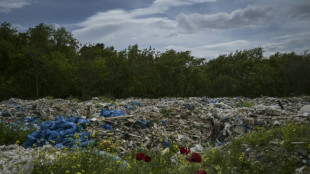
-
 Spain starts probing causes of massive blackout
Spain starts probing causes of massive blackout
-
France targets cheap Chinese goods with fee on packages

-
 Amnesty accuses Israel of 'live-streamed genocide' in Gaza
Amnesty accuses Israel of 'live-streamed genocide' in Gaza
-
Japan, Philippines leaders vow to deepen security ties

-
 AstraZeneca moves some production to US amid tariff threat
AstraZeneca moves some production to US amid tariff threat
-
Shadman's ton gives Bangladesh lead in 2nd Zimbabwe Test

-
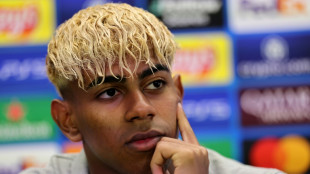 Barca's Yamal: I admire Messi but don't compare myself to him
Barca's Yamal: I admire Messi but don't compare myself to him
-
Pfizer profits dip on lower Paxlovid sales

-
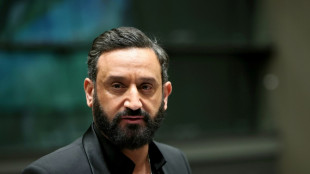 French right-wing TV host fans talk of presidential bid
French right-wing TV host fans talk of presidential bid
-
Two men in court charged with 'moronic' felling of famed UK tree
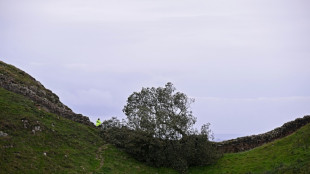
-
 Amnesty accuses Israel of 'live-streamed genocide' against Gazans
Amnesty accuses Israel of 'live-streamed genocide' against Gazans
-
Spotify posts record profit in first quarter
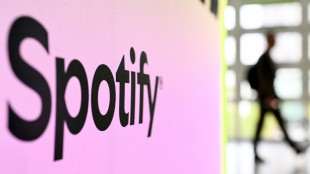
-
 Sciver-Brunt named as England women's cricket captain
Sciver-Brunt named as England women's cricket captain
-
GM profits top estimates, but automaker reviewing outlook due to tariffs

-
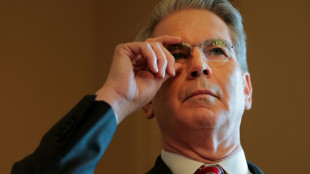 Stock markets edge up as Trump softens tariff pain for auto firms
Stock markets edge up as Trump softens tariff pain for auto firms
-
Pricier trainers? Adidas warns on US tariff impact

-
 Spain, Portugal rule out cyberattack for massive blackout
Spain, Portugal rule out cyberattack for massive blackout
-
Suryavanshi, 14, dubbed India's next superstar after shattering records

-
 Power back in Spain, Portugal after massive blackout
Power back in Spain, Portugal after massive blackout
-
Pakistan says it shot down Indian drone along Kashmir border

-
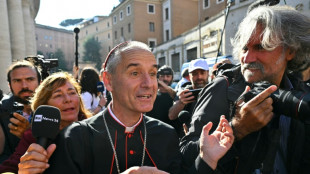 Cardinals run the media gauntlet ahead of conclave
Cardinals run the media gauntlet ahead of conclave
-
BP profit drops 70% amid pivot back to oil and gas

-
 Iran says fire contained after deadly blast at key port
Iran says fire contained after deadly blast at key port
-
Irish rappers Kneecap deny support for Hamas, Hezbollah

-
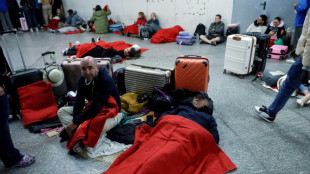 Blackout plunges Spain into chaotic night of darkness
Blackout plunges Spain into chaotic night of darkness
-
Convicted cardinal confirms he will sit out conclave
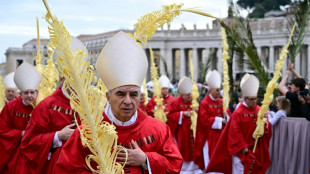
-
 Kashmiris fortify bunkers anticipating India-Pakistan crossfire
Kashmiris fortify bunkers anticipating India-Pakistan crossfire
-
Adidas warns US tariffs to push up prices

-
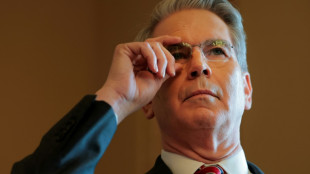 Markets boosted as Trump softens tariff pain for auto firms
Markets boosted as Trump softens tariff pain for auto firms
-
Suryavanshi, 14, dubbed 'next superstar' after batting records tumble

-
 Australian doubles player Purcell accepts 18-month doping ban
Australian doubles player Purcell accepts 18-month doping ban
-
Kashmir attack unites political foes in India, Pakistan

-
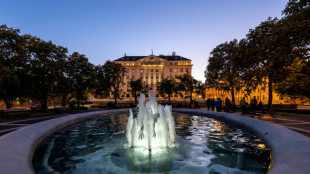 Croatia hotel toasts dizzying century of stars, sovereigns and champagne
Croatia hotel toasts dizzying century of stars, sovereigns and champagne
-
Kenya's desperate need for more snake antivenom
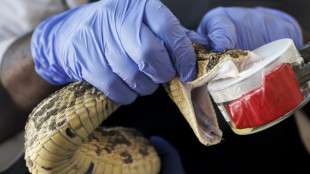
-
 Les Kiss in frame with Wallabies set to name new coach
Les Kiss in frame with Wallabies set to name new coach
-
Cavaliers scorch Heat, Warriors down Rockets in thriller

-
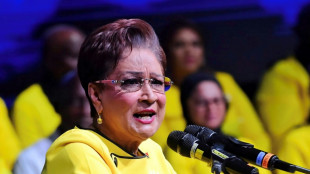 Opposition wins Trinidad and Tobago election, returning Persad-Bissessar as PM
Opposition wins Trinidad and Tobago election, returning Persad-Bissessar as PM
-
Study sheds light on origin of Australia's odd echidna

-
 France tries Syrian Islamist rebel ex-spokesman on war crime charges
France tries Syrian Islamist rebel ex-spokesman on war crime charges
-
Trump boasts of 'fun' 100 days, but Americans disenchanted

-
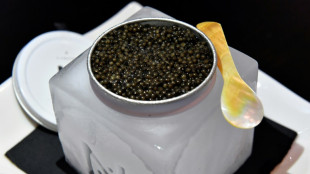 Elitist no more, caviar is turning casual
Elitist no more, caviar is turning casual
-
Amnesty accuses Israel of 'live-streamed genocide' against Gaza Palestinians

-
 Inter slump puts season at risk ahead of daunting Barca trip
Inter slump puts season at risk ahead of daunting Barca trip
-
Power returns to most of Spain, Portugal after massive blackout

-
 'I have hope': Vietnam Babylift survivor's search for birth mother
'I have hope': Vietnam Babylift survivor's search for birth mother
-
US climate assessment thrown into doubt as Trump dismisses authors

-
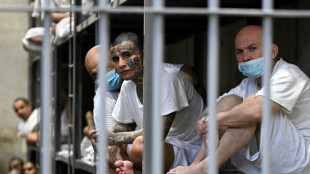 Venezuelan president slams US over little girl's 'abduction'
Venezuelan president slams US over little girl's 'abduction'
-
Hard-right upstarts eye big gains in local UK polls
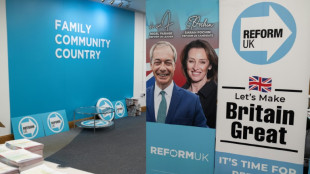

Tintin comic new edition addresses racism controversy
There has been a mixed response from anti-racism groups over a newly modified version of the Tintin comic books, after it was widely criticised over its colonialist depiction of Africans.
"Tintin in the Congo" by Belgian comic strip artist Herge, the second volume of "The Adventures of Tintin", was first published in 1931.
The Belgian Congo -- comprising most of present-day Republic of Congo -- was then a colony of the European country, becoming independent in 1960.
In the comic Tintin, an intrepid reporter, travels to Belgian Congo to report on events there leading to encounters with native people, wild animals and an American diamond-smuggling gangster.
Over recent decades, the comic strip has become increasingly controversial, with critics pointing to its racist and colonialist treatment of the local population.
The new edition, launched in November together with two other books in the Tintin series, carries a preface explaining the colonial context of the time.
It also contains tweaks to the story. At one point, Tintin teaches an African child mathematics, whereas in the original he teaches the child that its home nation is Belgium.
The cover was also changed from the original, showing Tintin facing off against a lion, whereas before he was sitting with a black child.
"This volume goes back to a time, that is thankfully over, where it was acceptable to consider blacks as inferior," said Patrick Lozes, founder of CRAN, a federation of anti-racism associations.
He welcomed the addition of the preface, which he said went "in the right direction".
The preface, written by Philippe Goddin -- head of the Friends of Herge association -- is mostly concerned with defending the record of Tintin's creator in terms of racism.
"He defended himself vigorously against that charge," he wrote. "He happily mocked everybody, whites and blacks."
In an interview with AFP Goddin said "there is a thin line between caricature and racism, he did not cross that line".
Pascal Blanchard, a historian of colonialist propaganda, said he was "surprised" that the publishers did not make a special announcement of the changes, and that the new preface was not mentioned on the cover.
He called the preface "highly debatable".
Claims that Herge's work had simply been a reflection of his time were "facile and false", he said.
Herge himself admitted in 1975 that all he knew about the Belgian Congo was "what people talked about" at the time, saying: "I drew Africans in the pure spirit of paternalism that was prevalent back then."
Herge is considered as one of the leading cartoonists of the 20th century, with a unique style that influenced many artists, including pop artists Andy Warhol and Roy Lichtenstein.
Tintin's adventures have been translated into 130 languages, sold 260 million copies and been made into TV shows and a Hollywood film.
A.Jones--AMWN


